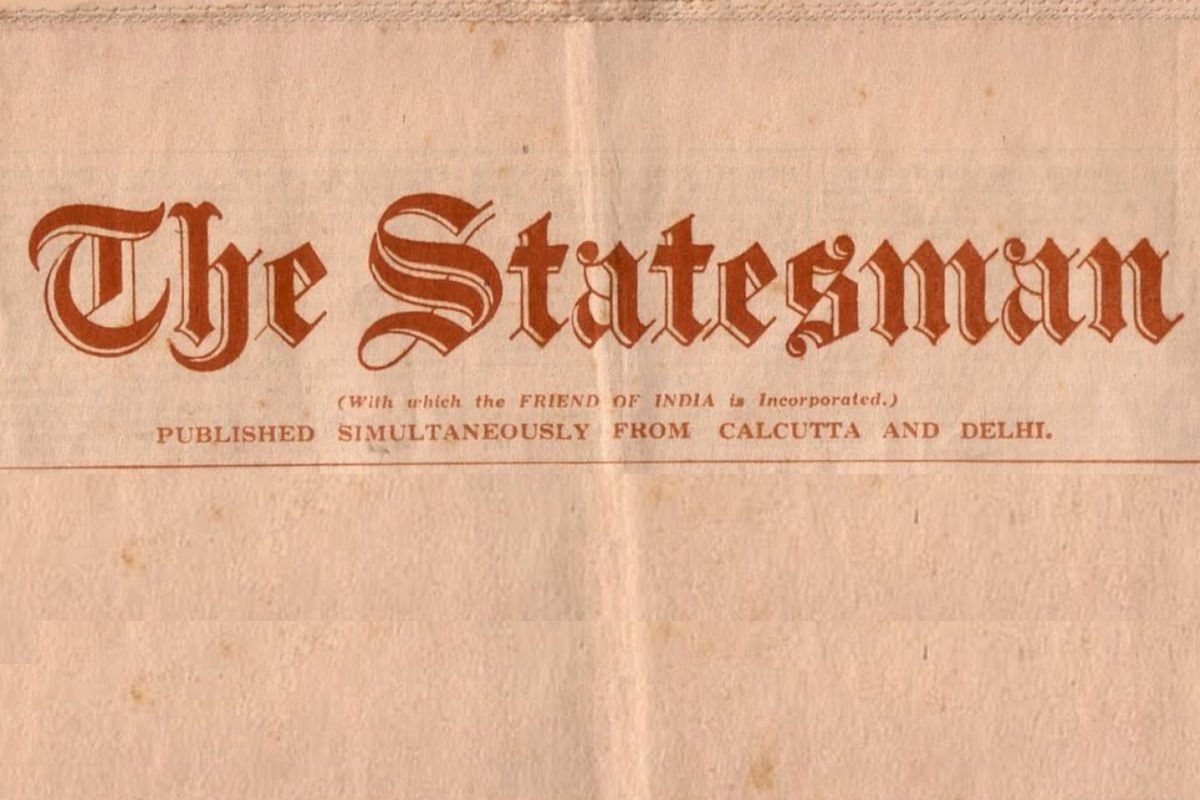A New Day, A New Dawn
There is a surprise for the readers. A special Poila Boishakh gift from none other than West Bengal chief minister Mamata Banerjee. Who has written a piece for this special edition.
On this day a century ago, these were some of the news items The Statesman readers got to read about India and the world.

SELF GOVERNMENT FOR INDIA
To The Editor Of The Statesman
SIR, – What is most characteristic of the dialectics of the Indian press and platform in their handling of the Home Rule question, is the glib use made of the word “people.” And yet it is on this one word the whole question of self-government for India turns. What, for instance, is meant when it is said, “The people of India want Home Rule?” If it is that the Indian people generally, or the great majority of them, wish to have self-government, it is false on the face of it, for the masses neither know nor want to know what that form of government is. If, on the other hand, the statement is based on the comparatively insignificant minority who have been more or less educated on western lines a fallacy – that of “illicit process of the minor term” – is clearly involved. It is open to question, too, whether all “educated” Indians either want Home Rule or understand what it is, but let that pass.
Advertisement
A.E.P.
A LIGHT SENTENCE
To The Editor Of The Statesman
SIR, – If the fact are as reported in the case of the Sikh taxidriver charged with attempting to run away with Mrs. Ezra after her husband had got out of the car and was engaged in settling the fare with the assistant, it would seem that Mr. Winkfield, in ordering a fine of only fifty rupees and the suspension of the culprit’s licence for a year, has taken a toe lenient view of the man’s offence. The suspension will not be a great deterrent to a repetition of such an impudent offence, as the man can easily support himself as a mechanic, and possibly even as a driver “on the quiet.” This has been done, to my knowledge, by ticca drivers similarly “suspended.” The offence needed the severer punishment of imprisonment. If Mr. Winkfield’s powers are limited the case might have been transferred to the court of a magistrate who had the power to inflict more deterrent punishment.
RADIATOR.
KABULI MONEYLENDERS IN CALCUTTA
To The Editor Of The Statesman
SIR, – Afghans resident in Lahore have met and repudiated the action of the Amir in going to war. This naturally raises the question of what Government’s attitude is, and is going to be, towards Afghans in Calcutta. Beyond the necessity of reporting themselves to the police they are allowed to ply their trade in Calcutta without restriction. This is amazing when it is remembered what, in the large majority of cases, the trade of Afghans in Calcutta is. They are moneylenders of the most mischievous description charging monstrous interest and oppressing their victims – Indians and Anglo-Indians – by threats of violence and in other ways. To many it has been a matter of surprise that they should at any time be allowed to follow their nefarious trade amongst the people of Calcutta but, if there were legal difficulties in the way before, the opportunity has now occurred of, first, interning and, subsequently, deporting these very undesirable visitors.
A.D. PICKFORD.
Calcutta.
LITERATURE FOR SOLDIERS
To The Editor Of The Statesman
SIR, – In the early days of the Great War and on many subsequent occasions I have appealed through the columns of the press for literature for the troops in Mesopotamia and East Africa and always met with a most generous response. This literature was despatched by the ladies of the Bengal Women’s War Fund and the letters of acknowledgement from the troops proved how keenly the gift was appreciated. A new war has started on the Afghan Frontier, and literature is once more urgently needed for our fighting forces. On their behalf, I beg for gifts of illustrated papers and magazines – these form the most acceptable type of literature. Mrs. Hamlyn is still carrying on the work of the Book Bureau for soldiers at 5, Government Place, and will gladly acknowledge and despatch literature sent to her at that address.
ADA WYNESS.
Calcutta.
Advertisement